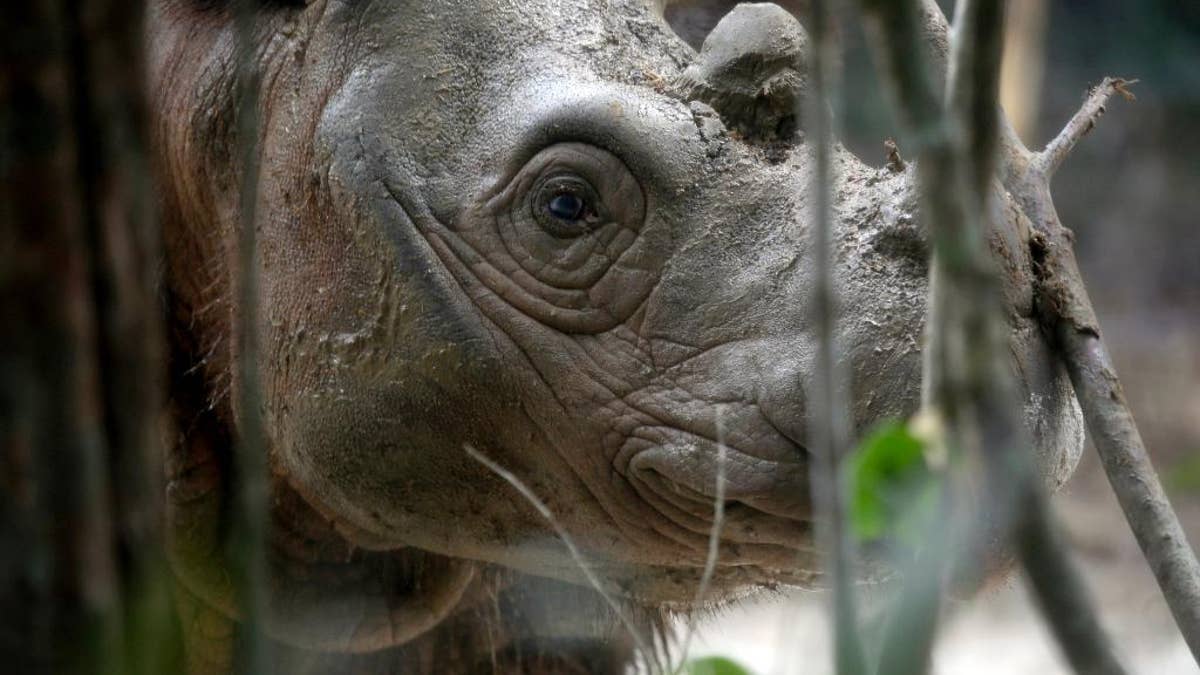
An 8-year-old male Sumatran rhino named Harapan (hope) walks inside a cage at Way Kambas National Park on Sumatra Island Indonesia, Thursday, Nov 5, 2015. (AP Photo/Tatan Syuflana) (The Associated Press)
Global wildlife populations are up against a potential two-thirds population decline by 2020, warns the World Wildlife Fund in a recent report.
The study drew data from the Zoological Society of London’s Living Planet Index, which tracks wildlife populations and how they have changed in size. The report, titled "Living Planet Report 2016: Risk and resilience in a new era" examined over 14,000 vertebrate populations of over 3,700 species from 1970 to 2012.
The report found that global populations of fish, birds, mammals, amphibians and reptiles declined by 58 percent between 1970 and 2012. Additional research from Global Footprint Network was used in the report and shows that the human population is using the equivalent resources of 1.6 planets for its goods and services each year.
WORLD SUFFERS 'CATASTROPHIC' WILDERNESS LOSS, STUDY SAYS
“The top threats to species identified in the report are directly linked to human activities, including habitat loss, degradation and overexploitation of wildlife,” wrote the World Wildlife Fund on its website.
Food production, a major culprit, continues to lead the charge. Agriculture currently occupies about a third of the Earth’s total land area, accounting for nearly 70 percent of water use, according to the World Wildlife Fund. Further exploitation is taking the planet into “unchartered territory,” which includes a possible sixth mass extinction, according to the World Wildlife Fund.
“Wildlife is disappearing within our lifetimes at an unprecedented rate,” said Marco Lambertini, Director General of WWF International, in a statement. “This is not just about the wonderful species we all love; biodiversity forms the foundation of healthy forests, rivers and oceans. Take away species, and these ecosystems will collapse along with the clean air, water, food and climate services that they provide us. We have the tools to fix this problem and we need to start using them now if we are serious about preserving a living planet for our own survival and prosperity.”
DRONES COULD SAVE ENDANGERED FERRETS BY DROPPING PEANUT BUTTER-FLAVORED VACCINE PELLETS
The World Wildlife Fund added that 2020 provides the potential to collectively pivot on a global scale as commitments that have been made through the Paris climate deal will "kick in," according to the World Wildlife Fund.








































